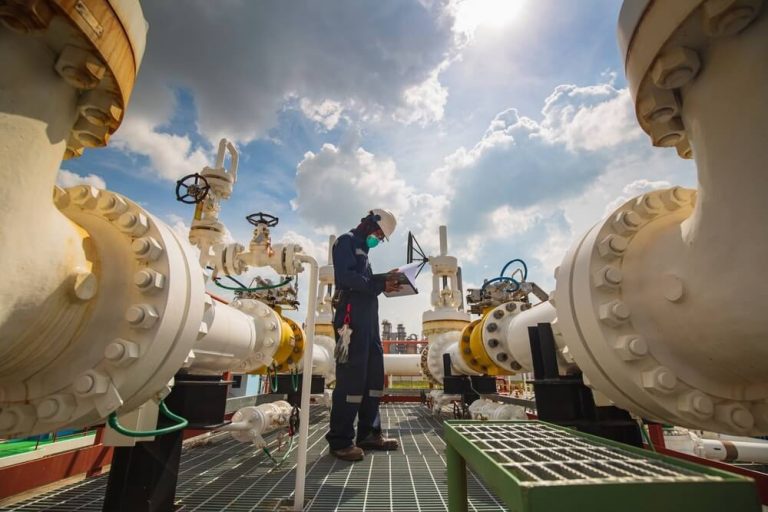Trade Gas: Impact of Geopolitics and Reserves on Prices
The interplay between geopolitical tensions, weather fluctuations, and energy reserves can significantly impact gas prices in the intricate landscape of global energy markets. Recent events have exemplified this volatility, as Dutch and British wholesale gas prices experienced fluctuations due to many factors. This article explores the dynamics that led to this price shift and delves into the broader context of business gas prices and EU gas reserves. Understanding these complexities is essential for businesses seeking to optimize their energy strategies and compare business gas prices.
The Price Fluctuations
On a brisk Monday morning, Dutch and British wholesale gas prices took a dip, effectively ending a rally triggered by geopolitical tensions and cold weather. This shift can be attributed to various factors, but the healthy storage levels and robust flows of liquefied natural gas (LNG) were instrumental in easing supply concerns.
The Dutch November gas contract experienced a notable decrease of 2.95 euros, reaching 52.45 euros per megawatt-hour (MWh). Meanwhile, the December contract in the Netherlands saw a 0.64 euro decrease, bringing it to 53.56 euros/MWh. The day-ahead contract fell by 10.00 pence in Britain, resting at 128.00 pence per therm.
This downturn in prices can be attributed to several factors, including a weakened demand side on the continent. LSEG analyst Ulrich Weber points to adjustments in local distribution zone (LDZ) consumption forecasts, which have been significantly revised downward. Heating demand, in particular, is now expected to be mostly below normal.
Despite the current cold snap in northwest Europe, temperatures are expected to rise as October transitions into November, bringing more seasonal weather. Consultancy Auxilione emphasizes that while the cold temperatures are being felt, they are not expected to persist beyond the week.
However, supply concerns persist on multiple fronts. Chevron’s LNG facilities in Australia are bracing for strikes as mediated talks continue. Israel has instructed Chevron to halt natural gas exports through a key subsea pipeline between Israel and Egypt, adding to supply fears. Damage to the Balticconnector gas pipeline has raised security concerns over Europe’s energy infrastructure sites, with the Finnish Prime Minister suggesting the possibility of deliberate sabotage.
Business Gas Prices in Context
In this volatile environment, businesses need to navigate their energy strategies carefully. Business gas prices are a key component, as they directly impact operational costs. Understanding the dynamics behind these prices is vital for businesses aiming to maintain cost efficiency.
The current scenario reflects the delicate balance of supply and demand. European storage inventories are at record levels, and gas demand remains 15-20% below pre-war levels in Ukraine. However, despite these seemingly comfortable figures, the European gas market remains tight, with this tightness expected to persist into 2024-25. The market is not projected to ease until the next wave of supply hits in 2025-26, according to consultancy Timera Energy.
EU Gas Reserves: A Safety Net
The European Union’s gas reserves play a vital role in ensuring energy security for its member states. In times of supply disruptions or unexpected price surges, these reserves act as a safety net. By maintaining sufficient gas reserves, the EU can mitigate the impact of external factors that might otherwise cause energy shortages and soaring prices.
EU gas reserves are particularly critical for industries that rely heavily on natural gas, such as manufacturing, power generation, and heating. Access to these reserves can make a substantial difference in terms of continuity and cost stability.
Comparing Business Gas Prices
In the pursuit of cost-effective energy solutions, businesses must compare business gas prices. This involves a nuanced analysis of not only current prices but also market trends, long-term forecasts, and regulatory changes. While seeking the cheapest gas prices may be a primary goal, it is equally important to ensure that the gas supplier is reliable and offers transparent terms and conditions.
To effectively compare business gas prices, companies should consider factors such as contract length, fixed vs. variable rates, and the flexibility to adapt to changing market conditions. Additionally, businesses should assess the environmental impact of their energy choices, as sustainability is becoming an increasingly important consideration for consumers and investors alike.
Insights into Business Gas Prices and EU Reserves
The trade gas market is an intricate web of interconnected factors, from geopolitical tensions to weather fluctuations and even EU gas reserves. Recent fluctuations in Dutch and British wholesale gas prices exemplify the volatility that businesses must navigate. In this context, understanding business gas prices and EU gas reserves is not just a matter of financial prudence; it’s a strategic imperative for companies seeking to remain competitive and resilient in a rapidly evolving energy landscape.
The post Trade Gas: Impact of Geopolitics and Reserves on Prices appeared first on FinanceBrokerage.

